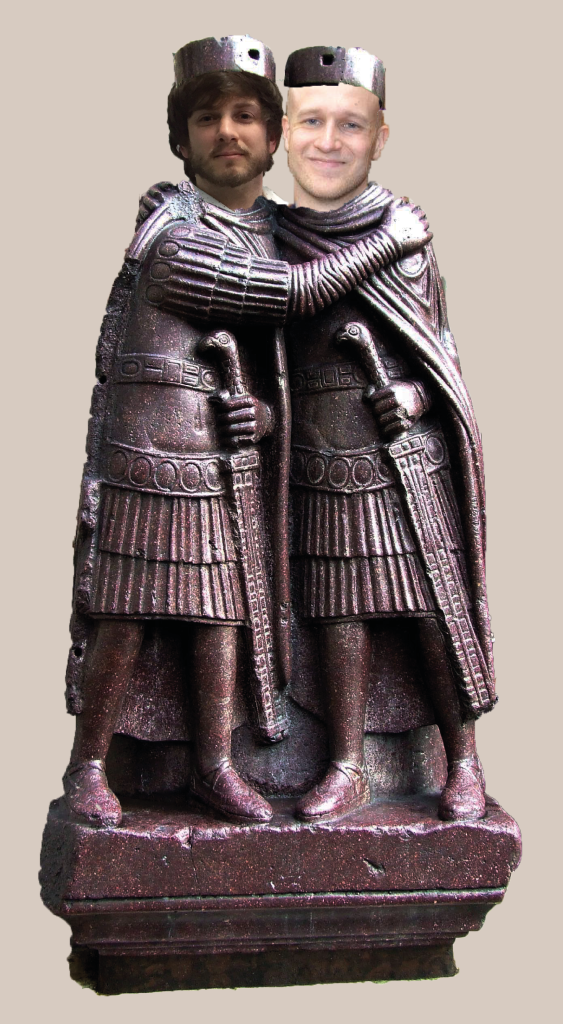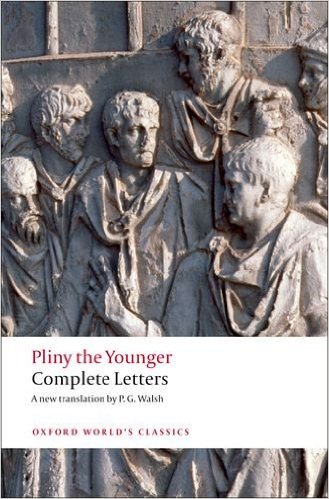
The Tetrarchs porphyry sculpture at St Mark’s Basilica in Venice with myself (left) and the author of today’s post Mikael Onsjö (right) depicted in an amicable embrace. The original photo by Nino Barbieri is distributed under a CC-BY 4.0 license. The statue faces and background have been modified from the original.
This week I am delighted to post an anecdote written by my old friend Mikael Onsjö. The anecdote is not strictly speaking from antiquity, but this is merely a quibble that is of no concern to the reader, as it is very much in keeping with the spirit of my blog. The curious reader will also enjoy this visualisation by Mikael about the familial relations in Ferdowsi’s monumental work: The Book of Kings. And now without further ado, I present:
Ferdowsi and the Three Celebrated Poets
by Mikael Onsjö
Abridged, this is story of the Persian poet Ferdowsi as told by James Atkinson Esquire of the honourable East-India Company’s Bengal Medical Service, edited by his son Reverend J. A. Atkinson, M.A., and in dedication to The Right Honourable The Earl of Munster, published 1886.
“His verse is exquisitely smooth and flowing, and never interrupted by inverted and harsh forms of construction. He is perhaps the sweetest as well as the most sublime poet of Persia.”
The author of this post especially likes the verses with which Ferdowsi tells us how the wandering King Jemshid was caught and sawed in two by the tyrant Zohak, among whose various features were that he had brain-eating serpents attached to his shoulders.
But onto the matter at hand!
Ferdowsi came from the city of Thus in Khorassan around the year 950 AD. At some point in his life he set out “unfriended and alone” on his way towards the capital Ghizni. Near the end of this trip, the story goes, he happened to pass by a garden where three celebrated poets (Unsari, Usjudi and Furroki) were sitting, chatting and drinking wine.
These three wise men contemplated chasing Ferdowsi off with hash words but decided instead to humble him in a game of erudition: One after the other they would make up connected lines of verse and whosoever was able to do it with “promptitude and effect” would be allowed to remain with the scholarly little gathering.
“The light of the moon to thy splendour is weak,” started one.
“The rose is eclipsed by the bloom of thy cheek,” proceeded the next.
“Thy eye-lashes dart through the folds of the joshun,” continued the third (“joshun” being a type of armour in medieval Persia).
But Ferdowsi, without a moment of pause, adroitly concluded the piece:
“Like the javelin of Giw in the battle with Poshun,” and with this masterful rhyme secured the endorsements of his three companions and an eminent start on his career as a poet in the capital. Some time later he was in an audience with the Sultan, Shah Mahmud, and was again required to compose poetry on his feet:
“The cradled infant, whose sweet lips are yet
Balmy with milk from its own mother’s breast,
Lisps first the name of Mahumud.”
The monarch was so impressed with these obsequious lines that he immediately commissioned Ferdowsi to write the Persian Book of Kings: the Shah Nameh. The writing of this epic saga took 30 years, time during which Ferdowsi fell out with his benefactor and even satirized him in the book.

